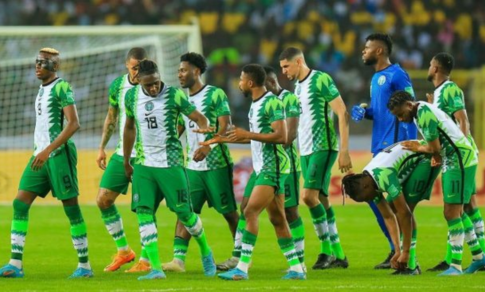Nigeria is indeed a giant of Africa when it comes to football matters. For the African Cup of Nations (AFCON), the largest country in sub-Saharan Africa has a name etched in pride as the best among the rest.
Nigeria, after 1994, has been a regular face in the AFCON and has only missed out once due to political differences, but has qualified for all since then. In fact, qualifications to the AFCON or any major tournament are considered a birthright for Africa's most populous country.
With a rich history that includes three championships, Nigeria is set to participate in the TotalEnergies Africa Cup of Nations for the 20th time.
Unlike the World Cup, where Nigeria has only reached the round of 16 thrice, AFCON is where Nigeria has consistently excelled and mostly given a favorite tag, winning only three times.
The Super Eagles have finished in 3rd place 15 times since 1976. While they are used to getting far in the competition, Nigeria has had a rather difficult history in qualifying for it.
Nigeria has been banned once, withdrawn four times, and didn't qualify as recently as 2012, 2015, and 2017. Interestingly, the Super Eagles have outpaced most of their African counterparts every single time they've qualified. In fact, the last time they were knocked out at the quarterfinals was in 2000.
Their very first appearance in AFCON was in 1963, although they were knocked out in the group stage. They had to withdraw from two competitions - 1965 and 1970 - due to serious political instability and the resulting civil war. By 1976, they qualified and came in third place, repeating the same feat in 1978. Their 1963 appearance is historic, not only because it was their first time in the competition, but also because, to date, they have not conceded as many goals as they did in that year's edition of AFCON (10).
The first time the Super Eagles won AFCON was in 1980, the same year that Nigeria hosted the competition. To everyone's surprise, they conceded only one goal throughout the entire competition. By 1990, they had come runners-up thrice and were clearly a major force to watch for other African countries.
Another successful spell came in the early '90s when they finished runners-up in 1990, settled for third place in 1992, and won the 1994 edition.
The latter part of the decade saw them withdraw from the competition in 1996 due to South Africa's apartheid policies and get banned from competing in 1998.
The 2000s saw the Super Eagles pick up third place three times in 2002, 2004, and 2006. They lost to archrivals Ghana in the quarterfinals of 2008, making that year the lowest point of the decade for the Super Eagles in AFCON. Although they qualified throughout and had high goal-scoring numbers, they were unable to find a Cup win throughout the decade.
Nigeria had a rollercoaster experience in the 2010s. Surprisingly, they qualified only three times out of a possible six, but also managed to win the 2013 edition while coming third in the most recent 2019 edition.
Their 2019 AFCON outing has been termed as one of their worst defensive performances in recent history, as they conceded a shocking seven goals, their worst since 1984. The odds, however, are in Nigeria's favor to equalize for the 2021 edition of AFCON. While they have a good chance of winning it, they may have to face strong opponents like Sadio Mane's Senegal and Riyad Mahrez's Algeria to fashion a win for themselves.
The Super Eagles, known for their prowess, arrive in Côte d'Ivoire armed with formidable arguments, particularly on the offensive front, boasting talents such as Victor Boniface, Terem Moffi, Moses Simon, and Victor Osimhen.
Securing 15 points, the Super Eagles dominated Group A of the qualifiers, finishing ahead of Guinea Bissau, the only team to defeat Nigeria during this phase.
Player to Watch: Victor Osimhen
Victor Osimhen, the top scorer in the TotalEnergies Africa Cup of Nations Cote d'Ivoire 2023 qualifiers with 10 goals, is undoubtedly the player to keep a close eye on throughout the competition.
Named the best male football player at the recent CAF Awards, the Lagos native embarks on his third TotalEnergies AFCON campaign, describing it as the tournament of maturity.
Osimhen's key asset lies in his exceptional speed with the ball, enabling long-range attacks and exploiting spaces left by the opposition.
His distinctive playing style, coupled with clinical finishing, has shone in the Italian championship.
Nigeria's AFCON Achievements:
1976: Bronze Medalist
1978: Bronze Medalist
1980: Winner
1984: Finalist
1988: Finalist
1990: Finalist
1992: Bronze Medalist
1994: Winner
2000: Finalist
2002: Bronze Medalist
2004: Bronze Medalist
2010: Bronze Medalist
2013: Winner
2019: Bronze Medalist








ADD A COMMENT :